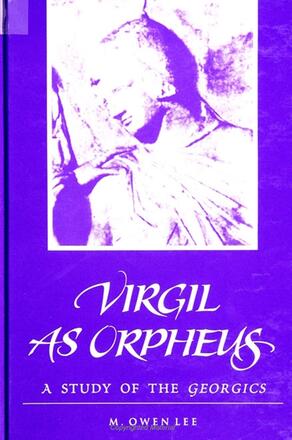
Virgil as Orpheus
A Study of the Georgics
Alternative formats available from:
Presents a popular introduction to Virgil's Georgics for the general reader.
Description
Though John Dryden once called the Georgics "the best Poem of the best Poet," and Montaigne thought it the most highly finished work in all of poetry, Virgil's song of the earth has never won as many readers as has his Aeneid, and at present it is the subject of more debate among classicists than perhaps any other poem in Latin. Using a Jungian approach, this book draws on the new commentaries in English as well as on the work of the great German Virgilians of the past, and is written in the eloquent, accessible, and personal style for which its author has become known. It outlines clearly the literary and historical background of the poem, discusses the sound of Virgil's hexameters, and treats each of the four georgics in detail, with special emphasis on the concluding myth of Orpheus. The most baffling of all Latin poems is shown in these pages to be Virgil's gift to Augustus, the most powerful man in the world as the salvational leader of the renewed Roman state, telling him what he must know about nature and about human nature if he is to rule the world well.
M. Owen Lee is Professor of Classics at the University of Toronto. He is the author of Fathers and Sons in Virgil's Aeneid and Death and Rebirth in Virgil's Arcadia, both published by SUNY Press. He has also written books on Horace's Odes and Wagner's Ring, and is an internationally known commentator on the Metropolitan Opera broadcasts.
Reviews
"I think it is very useful as a popular introduction to a text that many readers must be curious about. It is, so to speak, the written record of an ideal college course on Virgil's Georgics open to majors and non-majors alike." — Steven F. Walker, Rutgers University